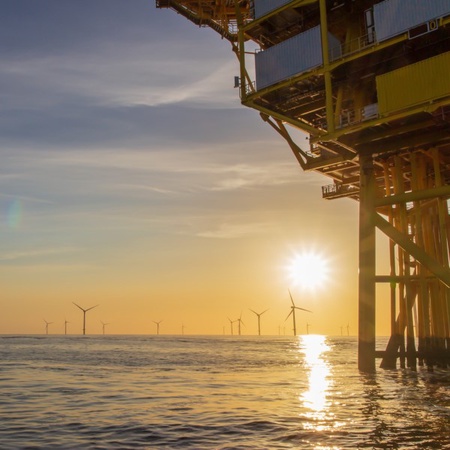Giulia Cottino is a Student Intern for COP26 and Politics & IR Student.
On the 14th of June I attended an online event where the Centre for Energy Transition held a panel discussion on the energy transition’s challenges and opportunities in the North Sea. Recently, the University of Aberdeen has renewed its commitment towards a full energy transition, inaugurating the Energy Transition Centre and a new postgraduate programme in Energy Transition Systems and Technologies.
The session on the challenges and opportunities in the North Sea, part of a series of conferences in preparation for COP26, provided cutting-edge insights into current and future developments in offshore energy system integration. In the discussion a wide range of panelists from energy companies and government institutions presented their solutions and technologies for an effective and efficient energy transition that involves a broad list of stakeholders.
Some of the ideas presented offered innovative solutions such as the electrification of operating oil and gas platform, repurposing platforms to produce hydrogen and or pipelines to transport it and exploiting depleted hydrocarbon reservoirs for carbon dioxide and or hydrogen storage. The participants highlighted the importance of North Sea and the necessity of implementing these technologies for a clean energy transition to tackle climate change, the problem of limited fossil fuel resources and an increasing demand for energy.
Yet, the process of energy transition presents some challenges in the field of fossil and renewable resources. On the one hand, the Oil and Gas industry must decarbonize existing operations in the short term, as well as decommissioning retired infrastructure in the longer term. On the other hand, the offshore sector is growing at rapid pace posing challenges related to logistics, maintenance and energy transmission.
Anyway, energy transition poses challenges not only in terms of developing new technologies but also in terms of policy-making and local communities’ involvement. What it is interesting about energy transition is the fact that it is a sort of new industrial revolution as stated by Rebecca Williams – Head of Policy and Regulation, Renewable UK.
This means that the whole of society is involved in this change which will create new types of jobs, not only in the engineering sector, and will lead to reshaping the energy consumption and lives of local communities. The entire industrial model is in discussion. As stated by the panelists, it is important to invest in research and innovation and in training engineers for creating new solutions to accelerate the energy transition. For Scotland, one of the leading countries in terms of renewable resources and decommissioning, energy transition represents a great opportunity to affirm itself as a global model of sustainability.


